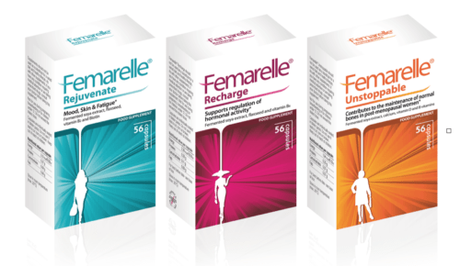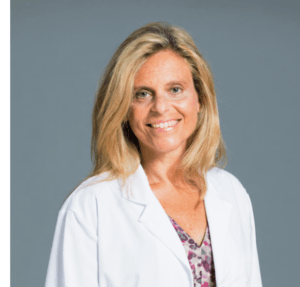
There’s been controversy about soy as a treatment for menopause symptoms. It turns out that soy isoflavones might be of concern – here’s new information that uses a more natural approach to soy. Enjoy this informative guest post with Dr. Margaret Nachtigall:
The science of soy: A natural solution for menopause relief
The symptoms of menopause are practically infamous in female circles. Throughout their lives, women hear stories from their mothers, sisters, aunts, etc., about the hot flashes, night sweats, mood swings and fatigue that come with life after 40. We consulted with menopause expert Dr. Margaret Nachtigall who pointed out that “while some women may experience mild symptoms, others may experience them more severely. This can start as early as age 40 but on average at 51.”
When a woman begins to experience estrogen decline, she may ask, “I don’t feel like myself anymore, what can I do for relief to get me through menopause?” While there are many solutions, gynecologists around the world have found great success in recommending one supplement in particular to their patients: Femarelle®.
Femarelle®’s active ingredient, DT56a, is an amino-acid rich extract derived from tofu, or in other words, soy. You might be wondering why to use a soy product when some studies recommend against it. Well, it’s because scientists aren’t actually worried about soy itself, but about the isoflavones within soy. Femarelle® is derived from soy, but it contains NO soy isoflavones, so women can feel confident taking it as a natural alternative to hormone therapy (HT).
Why Femarelle does NOT contain soy isoflavones
In Asia, soy has long been used as a natural way to relieve women of menopausal symptoms, catching the attention of western science. Seeking to better provide relief through supplementation, soy isoflavones, as phytoestrogens, were targeted as a possible agent to provide relief. In order to isolate the soy isoflavones, a harsh chemical extraction occurs changing the natural composition of the isoflavones. Due to the chemical extraction, there are many health risks involved with long-term use.
Femarelle® seeks to be a safe and natural option for women seeking menopause relief. It’s soy derived ingredient, DT56a, undergoes a natural process, like tofu, and is made up of 20 amino acids. “Supported by a series of 19 clinical studies, Femarelle® is a safe and effective solution for anyone seeking natural menopause relief,” said Dr. Nachtigall.

What are the benefits of using Femarelle®?
DT56a acts on the estrogen receptors of the body’s tissues without being recognized as estrogen. This allows it to target symptoms relating to different tissues for maximum focused effort and results.
Because DT56a can target specific tissues to help relieve symptoms, Femarelle® helps with a broad number of symptoms. Addressing the benefits of Femarelle®, Dr. Nachtigall said “Estrogen decline is split into three stages—perimenopause, menopause and postmenopause—which affect each woman differently. That’s why it is important to recognize that Femarelle® can address each woman’s needs on an individual basis.”
To further meet those needs, Femarelle® comes as three different products, Rejuvenate, Recharge, and Unstoppable, to help women as they face each stage of menopause. In addition to the tofu extract DT56a, each product contains a custom blend of complementary and symptom-focused ingredients. So, whether you are 40 and just starting to experience symptoms, in the throes of menopause in your 50s, or are experiencing the effects of postmenopause after 60, you can be sure there is a solution for you.
Visit www.femarelle.us to learn more and find out which product is right for you.
About Dr. Margaret Nachtigall

Dr. Margaret Nachtigall is an assistant professor of obstetrics and gynecology at NYU School of Medicine and is a highly regarded reproductive endocrinologist. She specializes in infertility, menopause and hormonal management and has a busy clinical practice in Manhattan. Margaret actively conducts and publishes research and is a founding member of the North American Menopause Society and on the Board of Directors for the Foundation for Women’s Wellness. She is a graduate of Princeton University and NYU Medical School and completed her reproductive endocrine fellowship at Yale Medical School.

